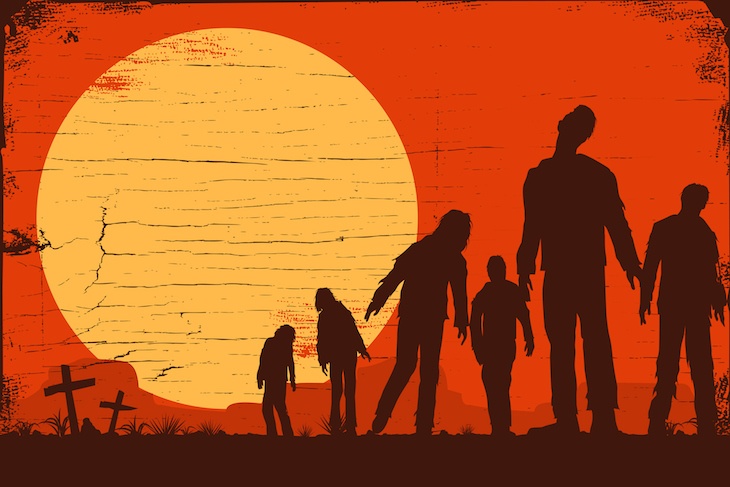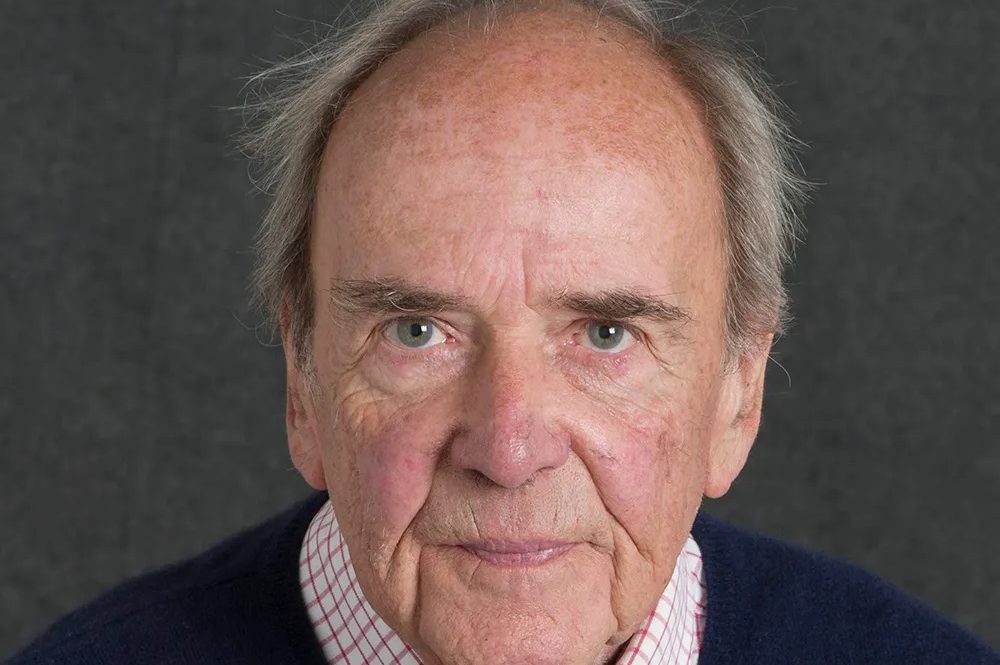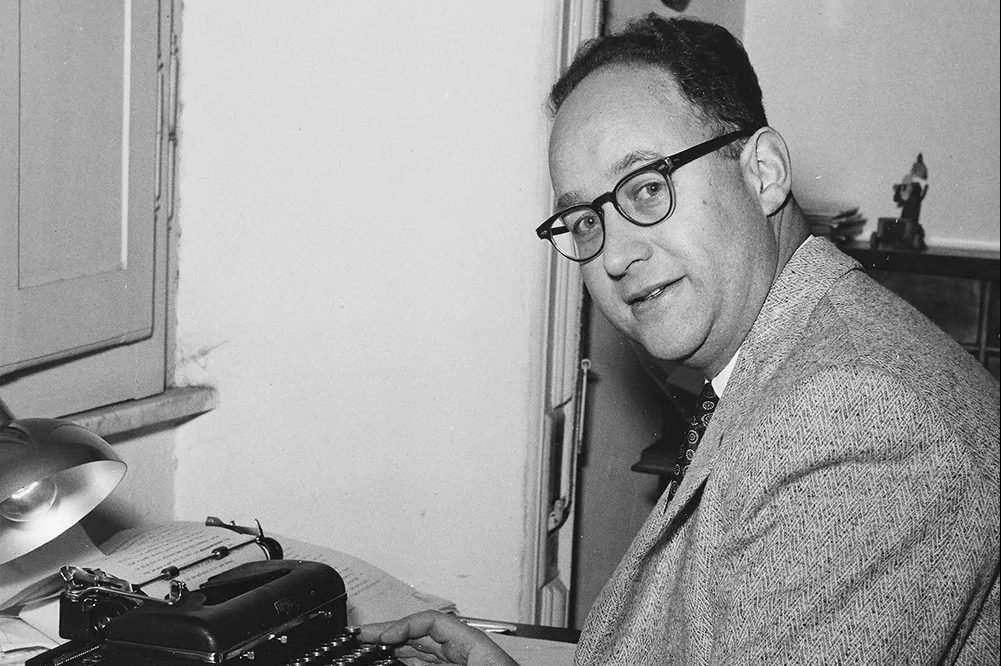When, on a test of general knowledge, the highly educated score far worse than chimpanzees, university degrees may be overrated (definitely). But something more interesting may also be going on.
According to the newly released Factfulness by Hans Rosling, we would-be smart people would improve our results on multiple-choice questions about the current state of the world (16 per cent) if we picked the answers at random (33 per cent). We all seem to think that humanity is in the toilet, and swirling more deeply into the sewer by the day. We’re wilfully blind to social progress. The more cheerful a host of indices look, the more belligerently we cling to the conviction that everything is getting worse.
Strictly speaking, I might score more highly than the average chimp on Rosling’s 12-question quiz, because I’m technically aware that human history has become steadily less violent, extreme poverty has plummeted during my lifetime, education of girls is on the increase, and immunisation against the likes of polio has been so successful that until very recently the WHO was on the cusp of eliminating the disease from the planet. But temperamentally, I flunk.
I am a self-confessed catastrophiser. As a novelist, I’m a professional catastrophiser. According to the New York Times Book Review, Shriver is ‘the Cassandra of American letters’ — which sounds like quite a claim to fame, except that according to Factfulness that makes me an ignoramus.
When global literacy has soared and wars are dramatically on the decrease, it’s baffling why people like me continue to lavish a staggering proportion of our mental, conversational, and literary energies on how bloody terrible everything is, and how terribly much terribler it’s all bound to get.
Part of the trouble is present-ism. Myopically, we don’t see modernity in context. Take two steps back, and barely yesterday we were hunching round a fire roasting voles on sticks.
On the other hand, subjectively, life is getting worse. That is, for individuals, every day that passes makes life remaining 24 hours shorter. The very structure of biological existence is apocalyptic, which may incline us to look for mirrors of our own horrifying mortality in the outside world. For all us pre-dead people, catastrophising is a form of projection. On a subconscious level, too, some of us bitter oldsters may actually fancy the prospect of taking everyone else with us when we go. The notion of all these blithe, carefree younger folks having a wonderful time without us is irritating.
My business is story, and story entails something crap happening. If everything is eternally sweet and good and nice — if life for everyone on earth just keeps getting better and better — I’m out of a job. (Try selling this plot to HarperCollins: ‘Mary gets her vaccinations, eats well, graduates from primary school, lives in a democracy, has access to clean water and electricity, and buys a mobile phone.’) More, given the persistence of an audience for fiction — and for most non-fiction, which these days is even doomier than the made-up stuff — novelists are clearly not the only ones who crave stories with crap happening. Crap happening is, if you will, a human need.
The news cycle is equally dependent on crap happening, so that news junkies like me are continually having our bleakness bolstered. Amid the smorgasbord of awfulness to choose from, we focus on stories that arouse the most emotion. I’m not apt to zero in on a more effective treatment for hives, but rather on the ‘trash vortex’ of plastic in the Pacific that is three times the size of France — an image that sends me into an almost hallucinogenic high of masturbatory self-immiseration.
Most of us, too, have pet catastrophes —to which we grow attached, and which we are always looking to feed, like adopted puppies we hope to nourish into full-grown rottweilers. Some of us suffer from an avocational confirmation bias, and keep a lookout for verification that Syria is insoluble and getting worse as a hobby. Others have a professional investment in the problem with which their own field grapples being far more dreadful than any other field’s darling difficulty. Researching my fourth novel Game Control during the African Aids crisis, I discovered that epidemiologists were convinced HIV would destroy the population of the continent. By contrast, demographers dismissed Aids mortality as a drop in the kicked bucket, and believed that Africans would overpopulate themselves into oblivion instead. Each group of scientists were in love with their adopted problem.
My pet problem is human population. I think those demographers were right. Because I’m so fiercely attached to my own version of the world — even more so than to the future prosperity of humanity, apparently — you should distrust anything I say about population. In kind, left-wing westerners are mightily attached to a gaping gulf between developed and developing countries that doesn’t exactly exist anymore, the better for progressives to feel as guilty as possible, because, gloriously, it’s all their fault. Tell them that poverty is on the wane, most of the world lives in a medium-income bracket, and the gap between rich and poor has narrowed, and they will get annoyed. They also won’t believe you.
The idea that the end of the world is nigh is invigorating. A dark horizon makes the foreground more vivid, and life seems more precious when it’s imperilled. Complacency about how delightfully matters are puttering along feels passive and soporific. For those of us addicted to shooting up gloom and collapsing in an ecstasy of inexorable Armageddon, optimism appears pallid, nay, repulsive — not an opiate, but a disgusting mug of warm milk.
However: catastrophising is an armchair pastime. It’s fun. It’s surprisingly comfortable; it goes well with wine and cheese. It’s an active pleasure — the veritable antithesis of being broadsided by catastrophe itself. Hair-tearing and hanky-twisting about imminent disaster is an entertainment. The only danger of catastrophising, as opposed to catastrophe, is that we lull ourselves into the mistaken impression that we’re prepared for the real thing.

























